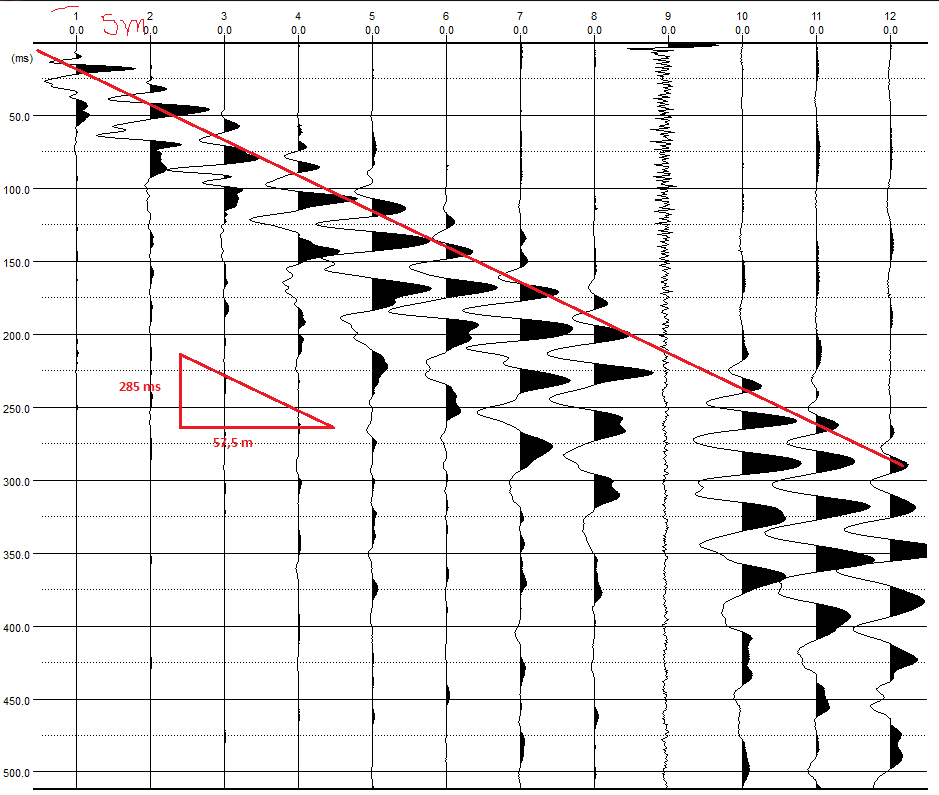I ran a 60 m line intended for surficial seismic refraction. Energization with hammer. 12 (10 hz vertical 5 m spaced) geophones and 5 shots (15 m spaced). Record length 0.5 s. Thanks to a borehole near a strata of man-made gravelly silt (0.40 m) and very soft silty clay (to 5 m) and then clay improves its consistency deeper were identified. My seismic traces seemed to be ok, but at office the principal wave train gives 200 m/s and first arrivals refractions are so weak that they cannot be easily identified. I think the principal train wave shadows them.
My question: What is the meaning of a 200 m/s train wave?
